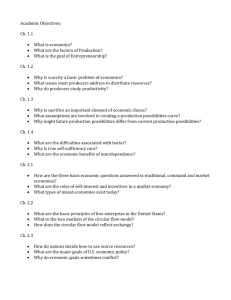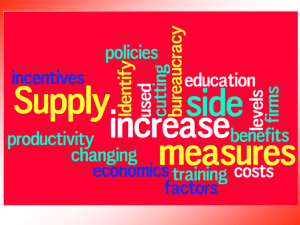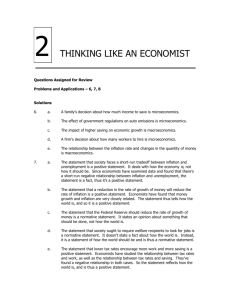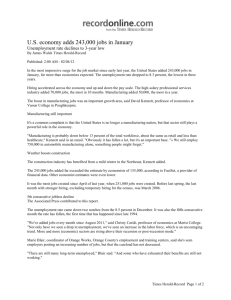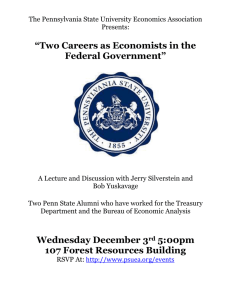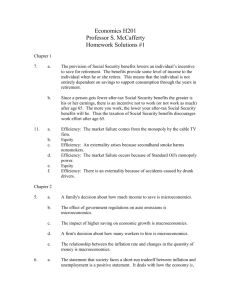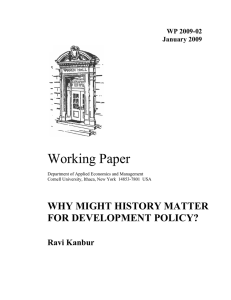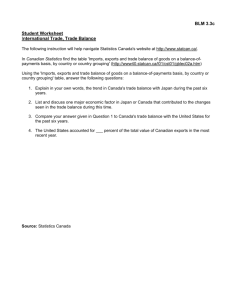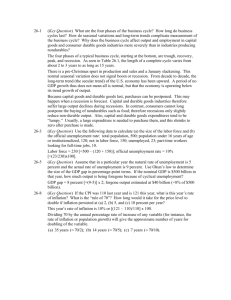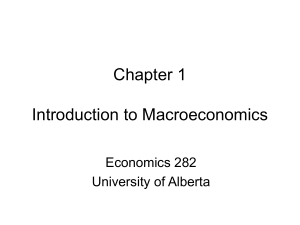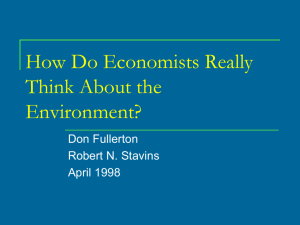EC 309 Quiz 1 Version 1 Name (Print): On my honor, I have neither
advertisement
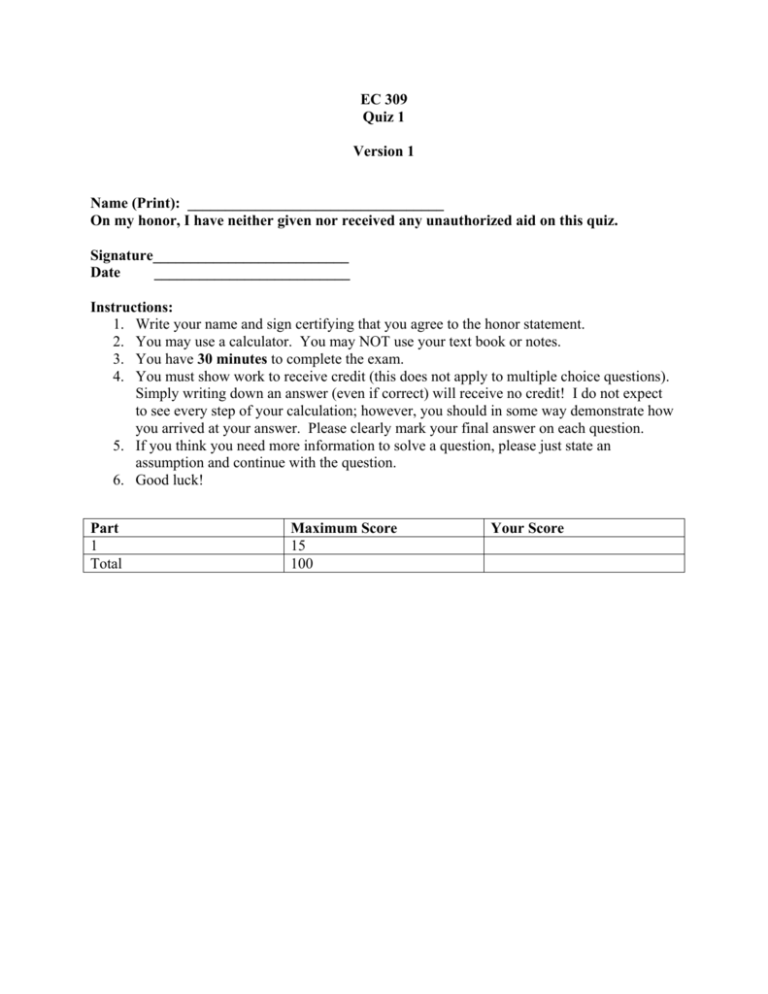
EC 309 Quiz 1 Version 1 Name (Print): __________________________________ On my honor, I have neither given nor received any unauthorized aid on this quiz. Signature__________________________ Date __________________________ Instructions: 1. Write your name and sign certifying that you agree to the honor statement. 2. You may use a calculator. You may NOT use your text book or notes. 3. You have 30 minutes to complete the exam. 4. You must show work to receive credit (this does not apply to multiple choice questions). Simply writing down an answer (even if correct) will receive no credit! I do not expect to see every step of your calculation; however, you should in some way demonstrate how you arrived at your answer. Please clearly mark your final answer on each question. 5. If you think you need more information to solve a question, please just state an assumption and continue with the question. 6. Good luck! Part 1 Total Maximum Score 15 100 Your Score 1) The main reason that the United States has such a high standard of living is A) low unemployment. B) high average labor productivity. C) low inflation. D) high government budget deficits. 2) Average labor productivity is the A) amount of workers per machine. B) amount of machines per worker. C) ratio of employed to unemployed workers. D) amount of output per worker. 3) The most direct effect of an increase in the growth rate of average labor productivity would be an increase in A) the inflation rate. B) the unemployment rate. C) the long-run economic growth rate. D) imported goods. 4) Short-run contractions and expansions in economic activity are called A) recessions. B) expansions. C) deficits. D) the business cycle. 5) During recessions, the unemployment rate ________ and output ________. A) rises; falls B) rises; rises C) falls; rises D) falls; falls 6) During the Great Depression, the unemployment rate for the United States peaked at approximately A) 10%. B) 70%. C) 45%. D) 25%. 7) The inflation rate is the A) percent increase in the average level of prices over a year. B) percent increase in output over a year. C) percent increase in the unemployment rate over a year. D) price level divided by the level of output. 8) A country has a trade deficit when A) imports exceed exports. B) imports equal exports. C) exports exceed imports. D) exports are zero. 9) A central bank is an institution that A) pays for government expenditures. B) controls a nation's monetary policy. C) runs a country's stock market. D) determines a nation's fiscal policy. 10) The peak in U.S. government spending as a percent of GDP occurred during A) World War II. B) the 1960s war on poverty. C) the Great Depression. D) the war against Iraq in the 2000s. 11) A country that has many well-trained macroeconomic analysts will not necessarily have more beneficial macroeconomic policies because A) economists' understanding of the economy remains poor. B) there are few ways in which economists' complex models can be applied to the real world. C) economists agree on so few government policies. D) economic policy is usually made by politicians, not economists. 12) Positive analysis of economic policy A) examines the economic consequences of policies but does not address the question of whether those consequences are desirable. B) examines the economic consequences of policies and addresses the question of whether those consequences are desirable. C) generates less agreement among economists than normative analysis. D) is rare in questions of economic policy. 13) Adam Smith's idea of the "invisible hand" says that given a country's resources and its initial distribution of wealth, the use of markets will A) insulate a nation from the effects of political instability. B) eliminate problems of hunger and dissatisfaction. C) eliminate inequalities between the rich and the poor. D) make people as economically well off as possible. 14) Classical economists argue that A) the government should have an active role in the economy. B) government policies will be ineffective and counterproductive. C) the government should actively intervene in the economy to eliminate business cycles. D) wages and prices don't adjust quickly, so the economy is slow to return to equilibrium. 15) Keynes was motivated to create a macroeconomic theory different from classical theory because A) he believed in government intervention in the economy. B) he believed in the idea of the invisible hand. C) monetary policy was more important than the classicals acknowledged. D) classical theory was inconsistent with the data in the Great Depression.
